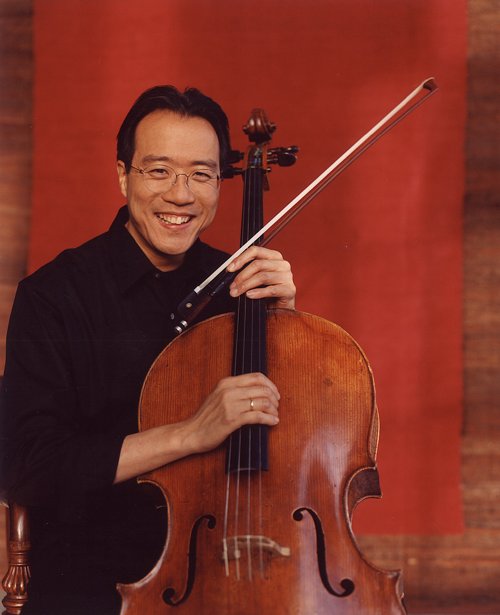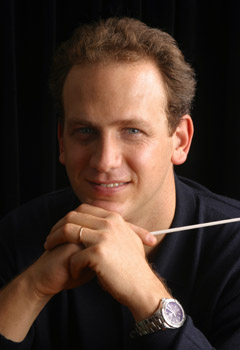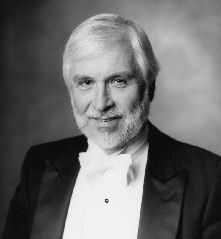New concerto an effective star vehicle for Yo-Yo Ma, but short on musical substance
In 2000 Dmitri Yanov-Yanovsky joined Yo-Yo Ma in the Silk Road Project, a collaboration that produced several works including his Night Music: Voice in the Leaves, which opened the Chicago Symphony Orchestra’s season in 2006.
That event led Ma and the CSO to commission a full-scale concerto from the Uzbekistan composer, which, after much revision, had its world premiere at Orchestra Hall Thursday night.
Yanov-Yanovsky’s Cello Concerto is cast in an unbroken single movement of 25 minutes, composed of five shorter sections alternating slow and fast. As one would expect of a Silk Road member, the music mines the exotic sonorities of the composer’s central Asian homeland, with effects drawn from traditional folk singing and the sound of the chang, a small Uzbek cimbalom.
More broadly the concerto also reflects a Shostakovich-like sensibility with the cello a human protagonist set against the authoritarian power of the orchestra. In this case, the soloist through his lyrical phrases attempts to humanize the oppressive force and “overcome the orchestra’s ‘dictatorship.’ ”
As one might expect, ample opportunities are provided for its star soloist to shine, and as a vehicle for Yo-Yo Ma, Yanov-Yanovsky’s Cello Concerto is certainly effective. There are myriad showy and yearning solo passages, with the high soaring phrases alternating with more guttural rhythmic fragments in the cello’s lower range. Ma made artful use of his many spotlit moments showcasing his expressive phrasing, tonal elegance and widely terraced dynamics.
Yet as a worthy composition in its own right, the concerto is less successful. The climactic extended slow passage near the end seemed to go on forever, and there is overreliance on chugga-chugga Minimalism and repeated short rhythmic fragments. Even with its many folkish brush strokes and surface facility, the orchestral writing comes off as rather slick and superficial, the concerto devolving into a kind of smartly scored vamping until the solo cello’s next star turn.
Ma, the CSO’s incoming creative consultant, certainly gave the premiere his considerable all Thursday night, as did the orchestra under conductor Carlos Miguel Prieto’s attentive direction. Playing from a score, he brought his customary refinement and distinctive brand of soulful yearning. Though more than once, one became less aware of the concerto’s actual musical content than of the soloist’s rarefied pianissimos—I found myself wondering how softly Ma could play without becoming inaudible, rather than staying focused on the broader, meandering musical narrative.
The audience certainly seemed to enjoy the new concerto, giving Ma, Prieto and Yanov-Yanovsky a thunderous and prolonged ovation. Characteristically generous, the cellist ensured his colleagues and the orchestra received their kudos. Ma even tricked Yanov-Yanovsky by pretending to walk on stage behind him, then quickly closing the stage door and holding it fast so the self-effacing composer was forced to take a solo bow.
With its similar background of crypto-protest against authoritarian forces, Shostakovich’s Symphony No. 6 made an apt follow-up to the new concerto.
With war on the horizon, the Soviet cultural apparatchiks were baffled by this quirky 1939 work with its unusual structure of a vast somber opening Largo followed by two short ephemeral, lightweight movements.
If the Sixth is not a great work, it is fully characteristic in its structural weirdness and unpredictability, veering from deep tragedy to silent-movie-chase whirlwind energy.
Prieto, making his CSO debut, had the full measure of this music, tracing the gaunt brooding landscape of the opening movement attentively with a Gergiev-like finger-wiggling style, though the performance could have used more of the Russian’s tautness and dynamic tension.
No complaints about the two ensuing movements, the goofy esprit of the Scherzo fully conveyed with its cartoonish take on steel-and-chrome Futurism. The brief final Presto’s mock-militaristic cacophony had all of the whipcrack ebullience one could ask for, taken at a breathless pace with the CSO members negotiating every hairpin turn with their usual polish and aplomb. Even by local standards, the CSO woodwinds outdid themselves, particularly Jennifer Gunn’s desolate piccolo solo, Scott Hostetler’s elegiac English horn and magnificently evocative flute work from Mathieu Dufour.
The program led off with music of Prieto’s homeland, Silvestre Revueltas’s Redes. This 1935 suite, adapted from the Mexican composer’s first film score, actually sounded more audaciously modern in its folk music retooling than the Yanov-Yanovsky concerto.
If less crazed in volume and intensity than Revueltas’s infamous Sensemaya, Redes (Nets) still manages to jar, from the jagged brass fanfare of the opening to the festive dances where a harsh dissonance and unsettling harmonic cast manage to undermine even the most ebullient and lyrical moments. Prieto drew a dedicated, iridescent performance that managed to convey the elegance as well as the rawness, though the conductor’s detailing of extreme dynamics at times sacrificed forward momentum.
It’s impossible to avoid noting that Dale Clevenger had another grim outing Thursday night. The CSO’s longtime principal horn made it through the Shostakovich relatively unscathed but botched exposed passages in the concerto premiere and blew a key solo in the Revueltas in a way that was simply embarrassing.
Clevenger has been a rock in the orchestra for more than four decades, an anchor along with Bud Herseth and Jay Friedman of the fabled CSO brass. But the sad fact is he is no longer up to the job. By not voluntarily standing down, Clevenger is not only doing a great disservice to his CSO colleagues and Chicago audiences, but damaging his own musical legacy. As a professional, he needs to put ego and personal issues aside, cede the first chair to assistant principal Daniel Gingrich for the remainder of this season and retire in the summer.
The program will be repeated 1:30 p.m. Friday and 8 p.m. Saturday. www.cso.org; 312-294-3000.
Posted in Performances








Posted May 15, 2010 at 7:07 am by Brian Richardson
Regarding Clevenger….the multiple ‘grim’ outings I continue to read about here describe a circumstance that would not stand, even in a good community orchestra like the one I play in. How can a great ensemble that is otherwise comparable to other elite ensembles in Berlin, NY, etc. allow this to continue? What do you think Clevenger’s orchestra colleagues are buzzing on this issue?
Posted May 15, 2010 at 8:35 pm by John Cahill
It is a shame that a failed writer, Larry Johnson (he ain’t Norman Mailer by a long shot) is allowed to publicly trash someone who is at the TOP of his profession, Dale Clevenger, one of the world’s greatest horn players. Hiding behind their pens, music critics are allowed to be a rude and destructive as they like, without a danger of being met outside. Where are Capone’s thugs when you need them?
One does not need to be a genius to hear a mistake on the horn, a child can do this. Any brass player can have a bad note, or solo, or first half of a concert, the instrument is unpredictable by nature, and using human flesh to produce sound is sometimes uncertain. I would rather hear Dale on a bad night than a boring perfect player. With two horn degrees from Juilliard and 50 years of music study I can hear MORE than a missed note: lyrical phrasing, a gorgeous individual tone, a wonderful sense of style and panache, things a child and your critic might miss.
Lar, you need to trade jobs with the guy who takes out the trash. As a matter of fact, just jump in the trash can while you are there.
Shame on you.
John Marquis Cahill
former member of the horn sections of the
New Jersey and Toronto Symphonies
Posted May 16, 2010 at 8:46 am by Lauri
Please don’t shoot the messenger, or in this case, the messengers. (NY Times, Sun-Times, Chicago Tribune have all said the same thing.) Our hearts must go out to Mr. Clevenger, who has set the bar higher for horn players throughout the world–he must be going through a great deal at the moment.
Posted May 16, 2010 at 12:11 pm by Brian Richardson
Yes….when we consider that Clevenger must be in the neighborhood of his 70s, it may be unrealistic to expect any mere mortal to be able to consistently deliver the demanding level of technical and musical performance required at the top of the orchestral food chain, especially on an instrument as treacherous as the horn.
Posted May 18, 2010 at 1:46 am by David Anderson
As for Mr. Clevenger, it is truly a shame that a horn player of his stature, after decades of brilliant playing, would now be putting himself, the CSO, and the audience in this position. No one, whether that’s an audience member or a critic wants to hear him struggle, as he has been regularly and for some time now. We root for him and all the members of Chicago’s renowned orchestra. He is undoubtedly working hard to turn things around, but unfortunately, after a year or more of very shaky performances, that still hasn’t happened. He’s a legendary player who deserves patience and compassion, but the inevitability of a situation like this becomes clear.
Posted May 22, 2010 at 10:55 am by Marko
Nobody plays brilliantly forever. Clevenger has been CSO principal horn for 45 years and is without question one of the all-time greats of the horn (and the CSO). Perhaps his time has now come, nothing more, nothing less. And yes, the NY Times and others have made similar comments, so it’s a bit cheap to trash this particular writer (or engage in the favored practice of criticizing critics when they actually have the temerity to criticize).